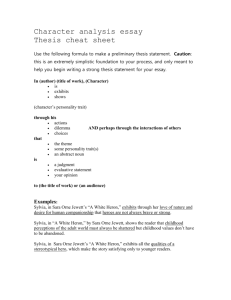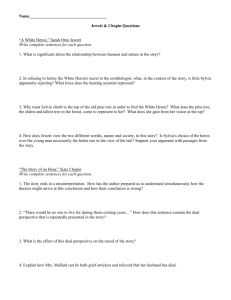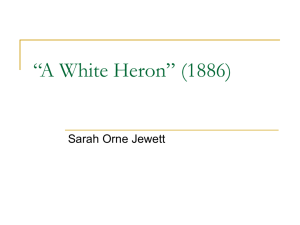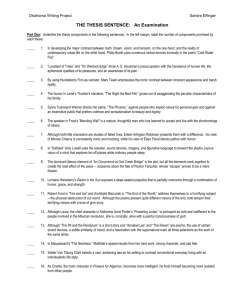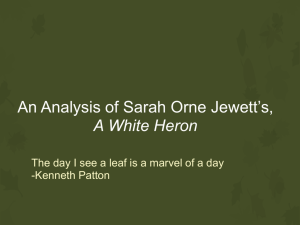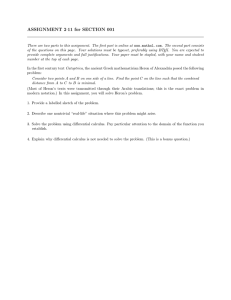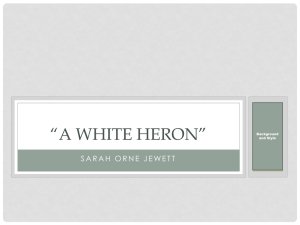RG.Jewett.doc
advertisement
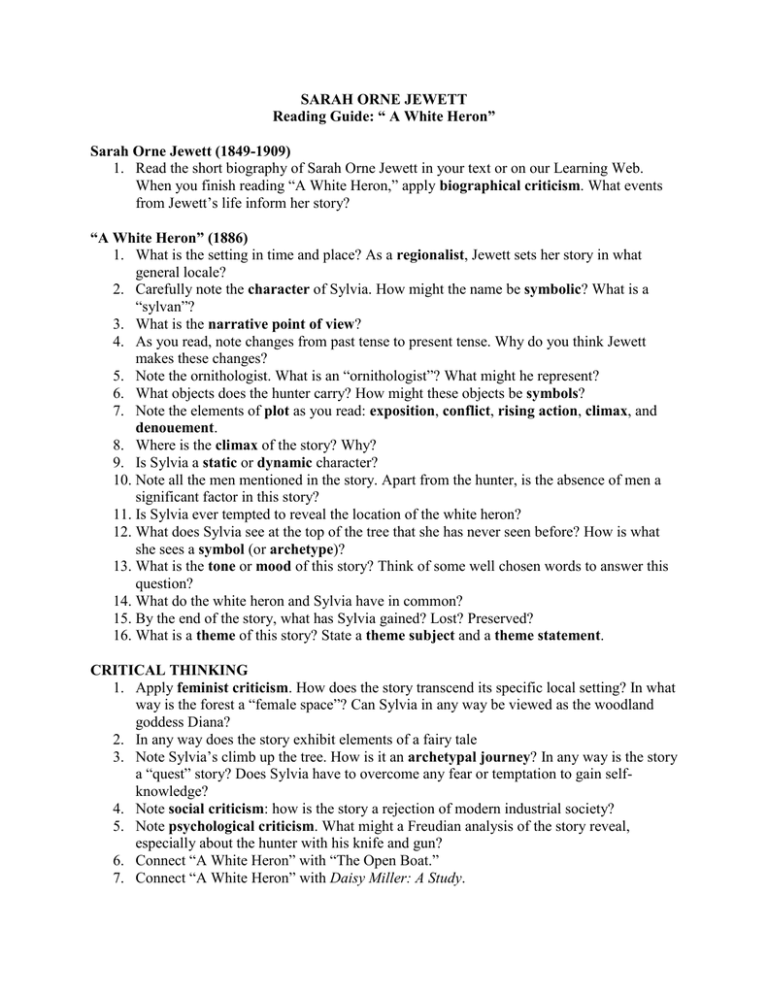
SARAH ORNE JEWETT Reading Guide: “ A White Heron” Sarah Orne Jewett (1849-1909) 1. Read the short biography of Sarah Orne Jewett in your text or on our Learning Web. When you finish reading “A White Heron,” apply biographical criticism. What events from Jewett’s life inform her story? “A White Heron” (1886) 1. What is the setting in time and place? As a regionalist, Jewett sets her story in what general locale? 2. Carefully note the character of Sylvia. How might the name be symbolic? What is a “sylvan”? 3. What is the narrative point of view? 4. As you read, note changes from past tense to present tense. Why do you think Jewett makes these changes? 5. Note the ornithologist. What is an “ornithologist”? What might he represent? 6. What objects does the hunter carry? How might these objects be symbols? 7. Note the elements of plot as you read: exposition, conflict, rising action, climax, and denouement. 8. Where is the climax of the story? Why? 9. Is Sylvia a static or dynamic character? 10. Note all the men mentioned in the story. Apart from the hunter, is the absence of men a significant factor in this story? 11. Is Sylvia ever tempted to reveal the location of the white heron? 12. What does Sylvia see at the top of the tree that she has never seen before? How is what she sees a symbol (or archetype)? 13. What is the tone or mood of this story? Think of some well chosen words to answer this question? 14. What do the white heron and Sylvia have in common? 15. By the end of the story, what has Sylvia gained? Lost? Preserved? 16. What is a theme of this story? State a theme subject and a theme statement. CRITICAL THINKING 1. Apply feminist criticism. How does the story transcend its specific local setting? In what way is the forest a “female space”? Can Sylvia in any way be viewed as the woodland goddess Diana? 2. In any way does the story exhibit elements of a fairy tale 3. Note Sylvia’s climb up the tree. How is it an archetypal journey? In any way is the story a “quest” story? Does Sylvia have to overcome any fear or temptation to gain selfknowledge? 4. Note social criticism: how is the story a rejection of modern industrial society? 5. Note psychological criticism. What might a Freudian analysis of the story reveal, especially about the hunter with his knife and gun? 6. Connect “A White Heron” with “The Open Boat.” 7. Connect “A White Heron” with Daisy Miller: A Study.
